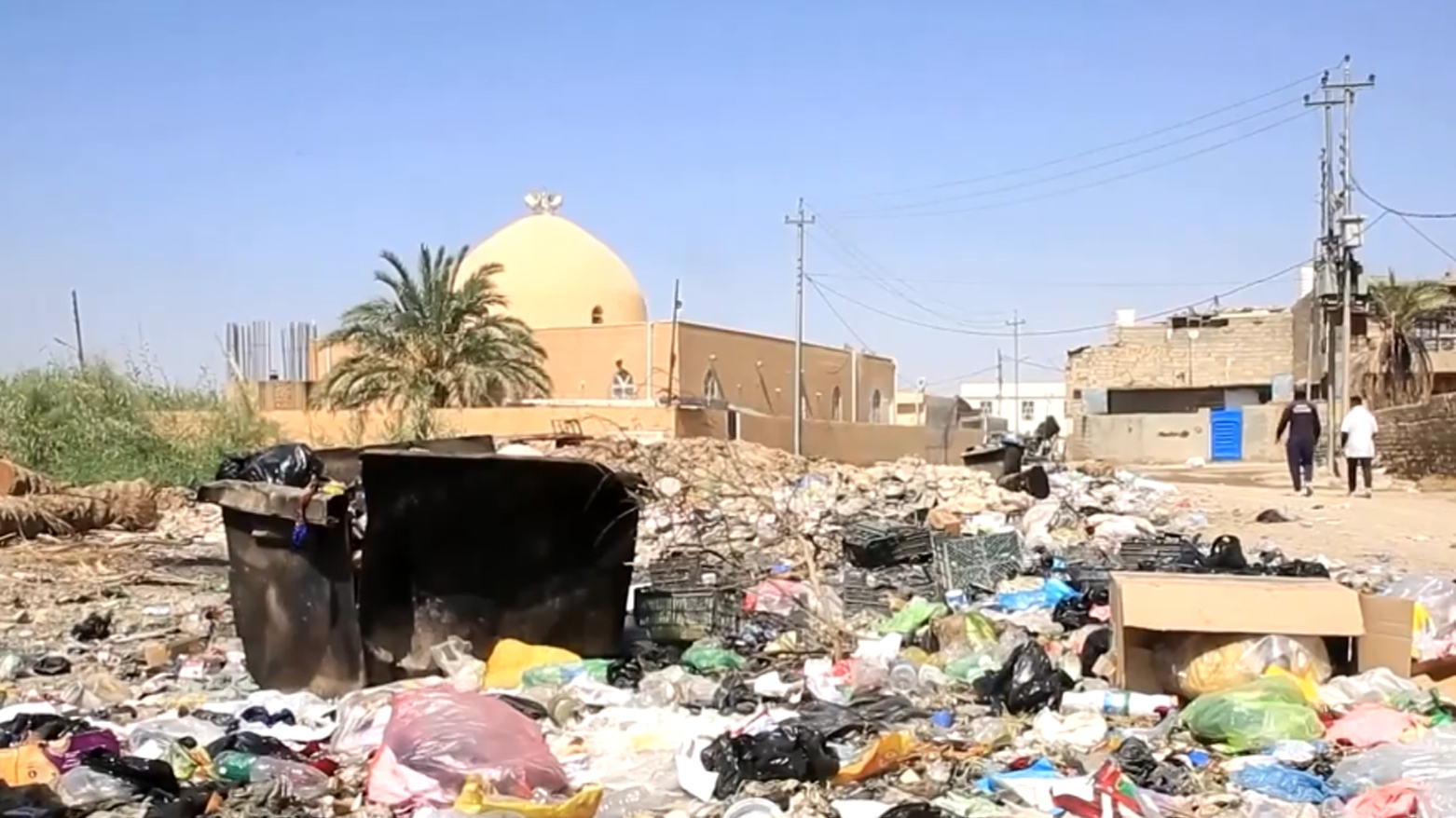Neglected Diyala Neighborhoods Struggle Amid Waste, Pollution, and Lack of Services
In the Dlemati neighborhood of Diyala, thick smoke from burning trash has become a daily sight. Rasmiya Mohammed, a local resident, told Kurdistan24 that the absence of municipal services has left residents with no choice but to take matters into their own hands.

ERBIL (Kurdistan24) – Residents of several neighborhoods in Diyala city continue to suffer from a severe lack of basic services, as piles of uncollected garbage line their streets, forcing locals to burn waste themselves—a practice that worsens air pollution and threatens public health.
In the Dlemati neighborhood of Diyala, thick smoke from burning trash has become a daily sight. Rasmiya Mohammed, a local resident, told Kurdistan24 that the absence of municipal services has left residents with no choice but to take matters into their own hands.
“This is a mosque; how can it be dirty next to the house of God? We have to burn the garbage,” she said, standing beside piles of waste.
The conditions in the area are dire. Streets remain unpaved, and there is no proper sewage or waste management system. During winter, heavy rains turn the roads into deep mud, while in summer, dust clouds stirred by vehicles fill the air.
“There are no services in our area,” said another resident, Qais Taha. “This road is filled with mud and water in winter; people cannot even reach the mosque. You are the first TV channel to ask us about this.”
The Dlemati neighborhood, built in 1985, has not received any government services since its establishment. Residents say children and students are forced to walk through mud and garbage to reach school each day.
“Our streets and roads have been destroyed. We have no drinking water; the water that comes to us smells bad. If it rains, our children cannot go to school, and we have to transport them in auto rickshaws," another resident told Kurdistan24.
Despite the poor living conditions, the province’s main streets are lined with posters and campaign banners of election candidates, while neighborhoods like Dlemati remain forgotten. This contrast has deepened frustration among residents who say they have been neglected for decades.
More than two decades after the fall of Saddam Hussein’s regime, Diyala’s residents say little has changed. Iraq continues to export more than four million barrels of oil per day, yet many citizens still lack access to basic services such as clean water, paved roads, and waste collection.
The neglect of Diyala’s neighborhoods reflects broader governance and infrastructure challenges that persist across Iraq, where uneven service delivery and corruption have fueled public discontent and eroded trust in government institutions.